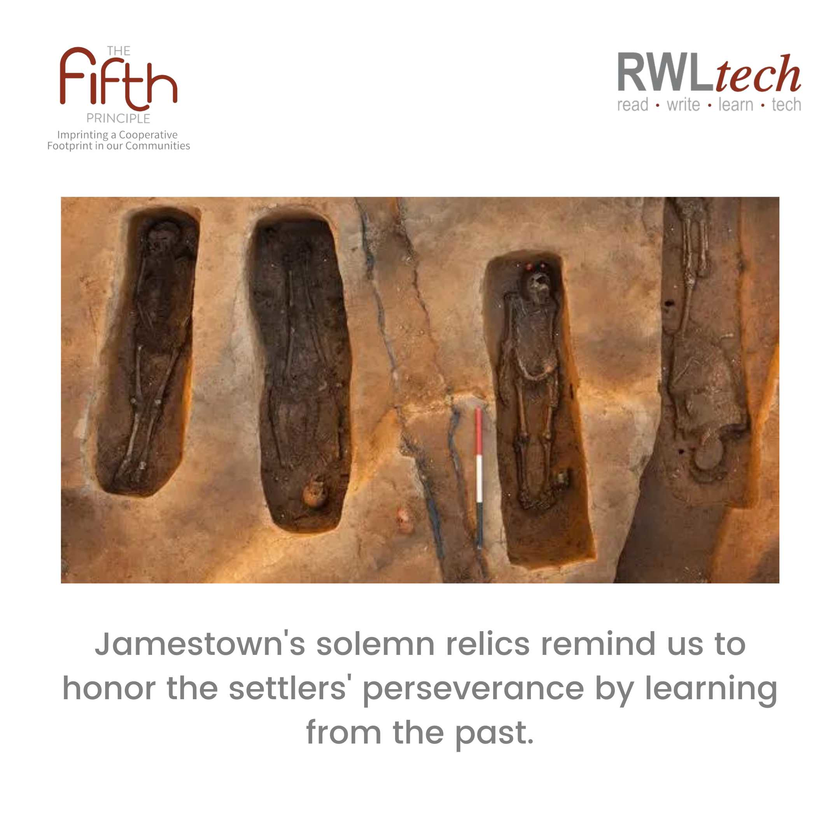The discovery of cannibalized remains at Jamestown offers sobering insight into the harrowing fight for survival endured by early settlers. While disturbing, these relics stand as a solemn testament to the enormity of hardships overcome and lives lost in laying the groundwork for our nation. Examining this difficult history reminds us of the remarkable perseverance and sacrifice required to survive Jamestown. As we reflect on the stories of those who faced unthinkable adversity, we are called to honor their legacy by learning from the past to create a more compassionate and resilient future.
Do you want to learn more about what you can do to act NOW! and save our Constitution?
https://www.thefifthprinciple.coop/wcid.html
Take your learning to the next level:
✍️ Join our course on faith here.
https://www.thefifthprinciple.coop/faith.html
✍️Learn about historical events that shape our future. Flashback to a Fabulous Future.
...


Join us for this great home school summit! https://greatdiscovery.ai/homeschool/416328/
I encourage YOU to employ what I call "Harmonic Leadership," which is a really evocative name. Let's explore the core philosophy behind that title and what it means to lead harmonically?
This is a concept I chose very intentionally. For too long, we’ve associated leadership with a single, loud voice—a soloist. But the most successful, innovative, and resilient teams don't operate like a solo act; they operate like a symphony or a great jazz ensemble.
Harmonic Leadership is built on a simple but profound idea: a leader's primary role is not to be the best player, but to create an environment where every musician (person) can play their best, together. It’s not about everyone hitting the same note—that's unison, not harmony. Harmony is when different, diverse notes combine to create a sound that's richer and more beautiful than any single note (person) could be on its own.
So, to lead harmonically means you are focused on tuning the team. You’re listening to the dynamics, blending ...













